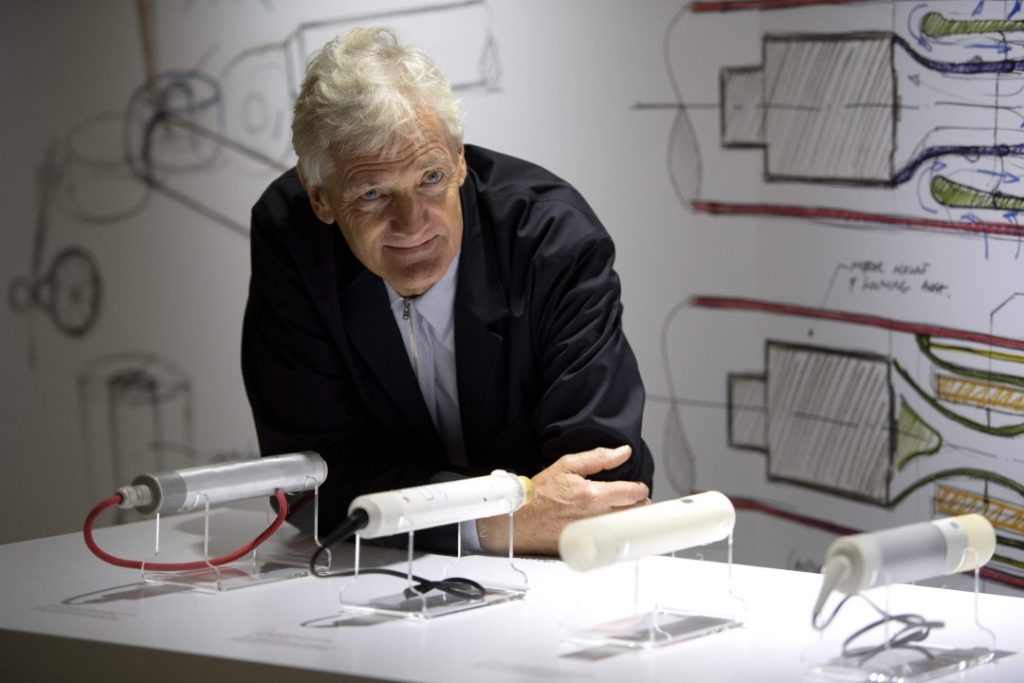Curated by the Knowledge Team of ICS Career GPS
Education

(Image Credit: Getty)
What we can learn from James Dyson’s approach to innovation
Excerpts from article by Cyril Bouquet, Jean-Louis Barsoux and Michael Wade, published by LinkedIn
Thirty years ago, James Dyson founded his namesake company and unveiled his signature achievement – the ‘bagless’ vacuum cleaner. It is an empire born of dissatisfaction with the way things work, or more precisely, with the way things don’t work.
They follow the ALIEN framework, a model that underlies radical innovation across fields from architecture to business to medicine. ALIEN stands for Attention, Levitation, Imagination, Experimentation and Navigation.
Here’s how Dyson used the framework to invent the bagless vacuum and transform it into a worldwide best-seller
Attention: Noticing what others miss
Attention is the act of focusing on a certain context or population to understand its dynamics and latent needs. Like a space alien, ALIEN thinkers observe what’s happening as though seeing the world for the first time. As a result, they notice what others miss or have learned to ignore.
Levitation: Gaining perspective
To make sense of observations, it’s important to pause and rise above the details. You must carve out the time and mental space to distinguish ‘forest from trees’.
Imagination: Connecting the dots
Imagination stems from making connections between disparate concepts. ALIEN thinkers are more imaginative because they’re less captive to the preconceptions that prevent others from thinking beyond existing boundaries.
Experimentation: Getting high on failure
The big risk, once you start testing a cherished idea, is that you will stop exploring options and challenging assumptions. ALIEN thinkers remain open to sharp changes of direction. They test to improve, not just to prove.
You don’t learn from success, and your successes are few and far in between. Failure is like a drug, actually. You go to work each day excited, because you know there are hundreds of problems there that you haven’t solved.
Navigation: Overcoming ‘No’
Once you have a workable solution, you need to mobilise supporters and steer past obstacles. It’s not just a matter of implementation. Navigation is the act of adjusting to the forces (and people) that can make or break your solution.
We have presented the five components of ALIEN thinking in a way that makes intuitive sense and is easy to recall. But it is by no means a fixed sequence. By attending to all five touch-points, you will maximise your chances of producing a truly game-changing solution by your journey’s end.
Career

(Image Credit: Freepik)
Rethink your resume for 2021
Excerpts from article by Lynda Spiegel, published in NBC News
Many people find themselves in a rut when it comes updating their resumes. Styles change over time and how resumes are written is no exception. But playing it safe isn’t safe; in an evolving job market, it’s critical to stand out from other job candidates.
Here’s where to start:
1. Is your resume merely a history of your employment?
Think of it instead as a marketing tool. You are the product; the employer has a need, and that need is to find the best candidate for the open position. Position yourself as the answer to that need, and you’ll increase your chances of being selected for an interview. Begin with a short summary that articulates your value proposition – the skills and experience you bring to the table. Use complete sentences and write it in the first person.
2. Focus on relevance
Don’t go back any further on your resume than 15 years at most. The farther back you go, the more your resume opens you up to ageism in hiring. If you worked for a prestigious company early in your career, reference it in the summary section.
3. Leave out details that distract from your professional brand
Just because you did something doesn’t mean it deserves space on your resume. Leave out employment that doesn’t align with the rest of your career trajectory. Often during periods of unemployment, many of us accept any job to tide us over. There’s nothing wrong with that, but if it doesn’t add to your value proposition, leave it out.
4. Put your educational credentials at the very end of your resume
If where you attended college is the most interesting thing about your candidacy, you haven’t given the employer a good reason to read further. Focus instead on what you’ve accomplished. And there’s no good reason to list the courses you took. Same goes for listing your GPA; they get that you were a good student; they want to know what you’re capable of doing in the business world.
5. Rethink what to leave off and what to add
- You can leave off your physical address since so many of us work remotely, and anyway, no one is going to snail mail you.
- Include the URL for your LinkedIn profile, and don’t forget to customise it to remove the random numbers the site will assign. It only takes a minute and makes your resume look more professional.
- Don’t include professional credentials after your name. The same goes for academic degrees; your MA, MBA or PhD degrees go in the education section of your resume, not after your name.
Remember, the goal of your resume is to motivate hiring managers to interview you.
(Disclaimer: The opinions expressed in the article mentioned above are those of the author(s). They do not purport to reflect the opinions or views of ICS Career GPS or its staff.)
Like this post? For more such helpful articles, click on the button below and subscribe FREE to our blog.




